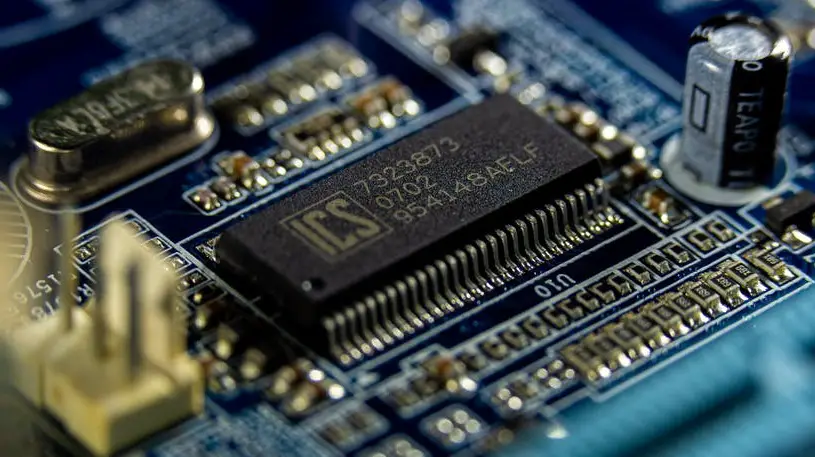South Korea’s President Yoon Suk Yeol pledged his support for his nation’s computer chip industry, as he called the increased competition in the industry amid the tensions between the US and China an “all out war.”
Yoon met with roughly 60 industry leaders, lawmakers, and ministers earlier in the day to hold discussions revolving around how to best support South Korea’s leading position in memory chips, encourage and assist in the development of system semiconductors, and secure materials, equipment, and labor.
In the meeting, Yoon said, “Geopolitical issues have become the biggest risk for companies to manage as of late. Companies alone cannot resolve this problem – it is one that the nation should tackle by strengthening cooperation with and closely communicating with like-minded countries like the United States.”
In a statement, the industry ministry said the government would help to expand research and development, aid smaller businesses, strengthen legal protections for chip technologies, and develop a chip testing facility.
South Korea has, in the process, sought to avoid becoming embroiled in the conflict between the US and China over semiconductor technologies, however it is a delicate balance. On the one hand, South Korean companies such as Samsung Electronics Co Ltd and SK Hynix Inc require access to US technology and equipment. However at the same time, roughly 40% of South Korea’s exported chips are delivered to China, according to trade ministry data.
When the United States announced last October that it was imposing restrictions on the export of chip-making tools to China, Samsung and SK Hynix were granted a one year waiver due to their manufacturing facilities there. The waiver will allow them to import tools for their factories, however it is not clear if the US will extend the waiver when it runs out..
On Wednesday credit rating firm Fitch said it it expects South Korea to become the primary location for Samsung and SK Hynix’s investment and technology upgrades, and as a result, it did not foresee any major long-term supply disruption from the semiconductor dispute between the US and China.
In the client note where it offered the analysis, Fitch said, “However, risks could increase if the dispute escalates in ways that more markedly affect the cost and availability of semiconductor supply-chain components, including more extreme rulings or bans by either the U.S. or China.”
Presently 40% of the production capacity of Samsung’s NAND memory chip and 40% to 50% of SK Hynix’s DRAM production capacity and 20% of its NAND capacity are located in China.


